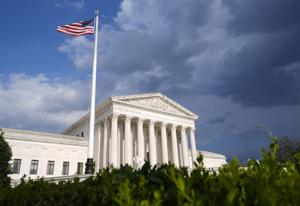The Supreme Court of the United States has denied an appeal from Ghislaine Maxwell, who is currently serving a 20-year prison sentence for her role in the sex trafficking operation run by her former partner, Jeffrey Epstein. This decision, made on October 23, 2023, effectively upholds the lower court’s ruling that found Maxwell guilty on multiple charges, including sex trafficking of minors.
Maxwell’s legal team argued that she was unfairly sentenced and claimed that the trial was rife with errors. They sought to challenge the jury’s verdict and the handling of evidence presented during the trial. However, the Supreme Court’s refusal to hear the case means that Maxwell’s conviction remains intact.
Background on the Case
The charges against Maxwell stem from her involvement with Epstein, who was arrested in July 2019 and later found dead in his jail cell while awaiting trial. Prosecutors alleged that Maxwell played a crucial role in recruiting and grooming underage girls for Epstein’s illicit activities. Her trial concluded in December 2021, resulting in a conviction on five counts, including conspiracy to entice minors to travel to engage in illegal sex acts.
Maxwell’s attorneys contended that the prosecution relied heavily on the testimonies of witnesses who had previously made inconsistent statements. They believed these inconsistencies should have warranted a new trial. Despite these arguments, the appellate courts upheld the original decision, reinforcing the legal framework around child trafficking offenses.
Impact and Reactions
The implications of this ruling extend beyond Maxwell herself, shining a light on the broader issues of trafficking and abuse within elite circles. Advocacy groups have welcomed the Supreme Court’s decision, viewing it as a critical step toward justice for survivors of trafficking. These organizations stress the importance of holding perpetrators accountable, especially in cases involving vulnerable individuals.
According to the National Center for Missing and Exploited Children, the fight against child exploitation remains urgent, with thousands of cases reported each year. The Maxwell case, coupled with Epstein’s high-profile connections, has catalyzed discussions about systemic failures in protecting minors and ensuring justice.
Maxwell’s appeal rejection may not be the final chapter in her legal battles, as her legal team has hinted at the possibility of pursuing other avenues for appeal in lower courts. Meanwhile, her case continues to resonate in discussions around sex trafficking, highlighting the need for ongoing vigilance and reform in legal protections for victims.
As the case evolves, it remains a focal point for advocates and policymakers alike, emphasizing the necessity of addressing the complex issues surrounding trafficking and exploitation.
